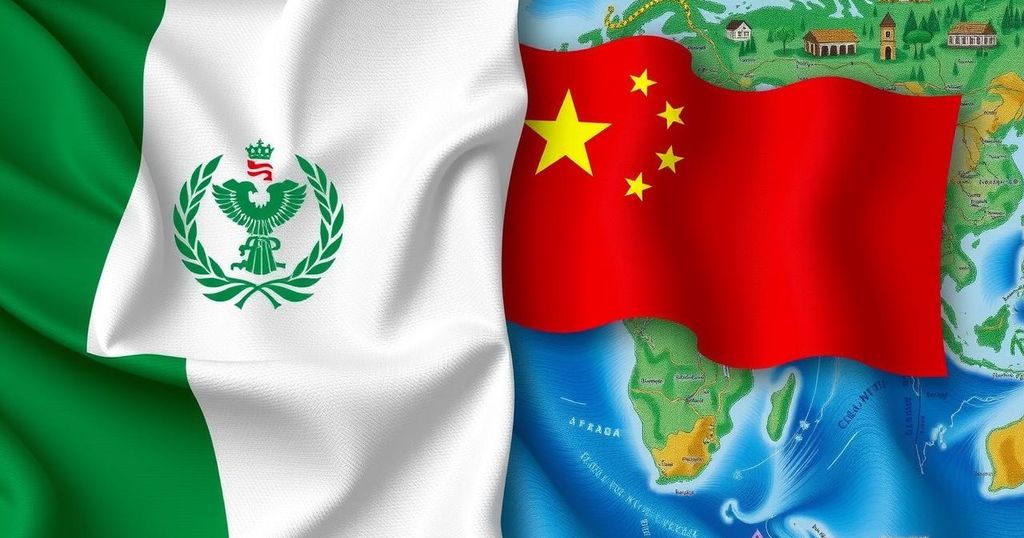The Sea Empowerment Research Centre warns that the Nigeria-China currency swap agreement could impede Nigeria’s active involvement in the Africa Continental Free Trade Area (AfCFTA). The deal may deepen Nigeria’s reliance on the Chinese Yuan and reduce its trade interactions with other African nations, contradicting the AfCFTA’s goals of promoting intra-African commerce and reducing dependency on foreign currencies.
The Sea Empowerment Research Centre has expressed concerns that the recent currency swap agreement between Nigeria and China could hinder Nigeria’s full engagement with the Africa Continental Free Trade Area (AfCFTA). The deal, which allows for the exchange of 15 billion yuan (approximately $2 billion), is geared towards enhancing trade and investment between the two countries; however, it may result in Nigeria becoming increasingly reliant on the Chinese Yuan. Significantly, this dependence could limit Nigeria’s capacity to engage with other African nations effectively, contradicting the AfCFTA’s goal of promoting intra-African trade and economic cooperation.
This currency swap agreement, valid for three years, aims to reduce Nigeria’s reliance on foreign currencies, particularly the US dollar. While it is designed to bolster financial relationships and facilitate trade, Mr. Eugene Nweke, the head of the Sea Empowerment Research Centre, warns that its implementation may primarily benefit trade relations between Nigeria and China, at the expense of broader pan-African commerce.
Nweke emphasizes that the agreement could invite an influx of Chinese goods into the Nigerian marketplace, thereby intensifying competition for local businesses, which counters the AfCFTA’s intent to support African industries. He points out that while the AfCFTA seeks to dismantle tariff and non-tariff barriers among African countries, the currency swap fails to tackle these critical challenges. With a noticeable trade imbalance, where Nigeria imports significantly more from China than it exports, such a deal could exacerbate Nigeria’s exchange rate pressures and its external reserve situation.
Moreover, Nweke articulates that the financial implications could leave the naira vulnerable to depreciation against the yuan. He remarks, “If the naira depreciates significantly against the yuan, it could make Nigerian exports more expensive and less competitive in the Chinese market.” Despite acknowledging the potential for increased trade between Nigeria and China, which constitutes almost 30 percent of Nigeria’s total trade, he warns against the risks posed by the currency swap agreement on regional economic integration and the effectiveness of the AfCFTA.
The Africa Continental Free Trade Area (AfCFTA) is an initiative aimed at creating a single continental market for goods and services, facilitating free access to commodities and services across Africa. Its primary objectives include promoting intra-African trade, fostering economic integration among African countries, and reducing dependency on external currencies. The recent renewal of a currency swap agreement between Nigeria and China raises concerns due to its potential implications for Nigeria’s engagement with the AfCFTA, particularly regarding trade dynamics with other African nations and the promotion of African currencies.
In summary, the currency swap agreement between Nigeria and China, while intended to facilitate bilateral trade and investment, poses challenges to Nigeria’s involvement in the AfCFTA. The fears expressed by the Sea Empowerment Research Centre highlight a risk of increased dependence on the Chinese Yuan, which could undermine Nigeria’s trade relationships with other African nations. There is a concern that this deal may not only affect competitive dynamics but also the broader objectives of promoting African economic integration and intra-African trade. Consequently, careful consideration is required to ensure that such international agreements align with the region’s integration goals.
Original Source: punchng.com







